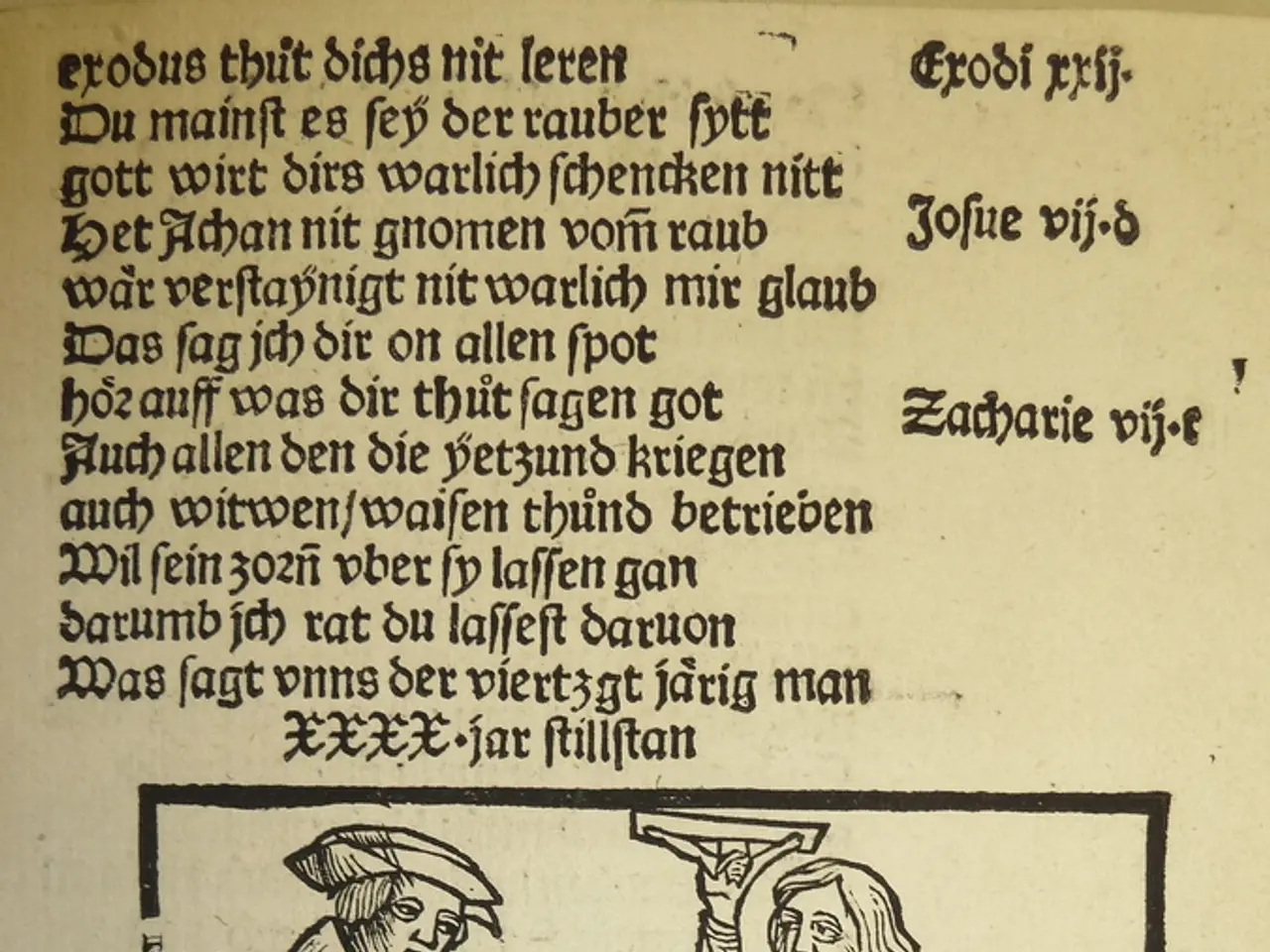Minister of Culture enacts prohibition against gender distinction - Minister of Culture enacts prohibition on gender-related matters
In a move towards preserving traditional language rules, German Culture Minister Wolfram Weimer and Education Minister Karin Prien have both implemented bans on gender-inclusive language in their respective departments.
Minister of State for Culture Wolfram Weimer has explicitly prohibited the use of gender-inclusive language in official communications of his department, advocating for the use of conventional forms like "Sehr geehrte Damen und Herren" (Dear Sir or Madam) instead of gender-neutral forms with asterisks or internal capital letters. He argues that forced gendering does not reflect the way the majority of people in Germany speak and that gender-inclusive language deepens societal divisions. However, he allows individuals to use gender-inclusive language privately but insists on standard language for official purposes.
Similarly, Education Minister Karin Prien of Schleswig-Holstein has implemented a ban on gender-sensitive language in schools and official education communications, advocating for clarity and traditional linguistic standards.
These bans are not isolated to these two ministers or their departments. The federal state of Bavaria has also imposed a similar ban on gender-sensitive language in official documents and classrooms, starting from April 1, 2024, citing concerns about the comprehensibility and legibility of texts as justification for the prohibition.
Other states such as Hesse, Saxony, Saxony-Anhalt, Schleswig-Holstein, Thuringia, and Baden-Württemberg have also prohibited the use of gendering in their official correspondence. The State Center for Political Education in Baden-Württemberg, for instance, has provided examples of this ban in its own state, as well as in other states.
The justification for these bans centers on upholding traditional German language rules as codified by orthographic standards, concerns about the readability and clarity of official texts when using gender-inclusive forms, opposition to what is seen as enforced or "forced" gendering, which is viewed as socially divisive, and preference for unity and standard language use in official government communications while allowing private use of inclusive language.
These developments contrast with earlier feminist and inclusivity movements aimed at addressing gender neutrality in languages with grammatical gender, like German, where traditionally masculine forms have been standard for mixed or unknown gender groups. The debate remains highly political and cultural, reflecting tensions around language, identity, and societal change.
Minister Weimer confirmed the ban on gender language to "Bild am Sonntag", and his department now greets addressees with the salutation "Sehr geehrte Damen und Herren" instead of using formulations with asterisks or internal I.
Sources: dpa, Bild.de, State Center for Political Education Baden-Württemberg, and ZDF.info.
[1] Bild.de. (2022, June 26). Wolfram Weimer verbietet Gendern in seiner Abteilung. Retrieved from https://www.bild.de/news/politik/wolfram-weimer-verbietet-gendern-in-seiner-abteilung-82382668.bild.html
[2] ZDF.info. (2022, June 26). Kulturminister Weimer verbietet Gendern. Retrieved from https://www.zdf.de/nachrichten/politik/kulturminister-weimer-verbietet-gendern-100.html
[3] dpa. (2022, June 26). Bayerischer Kultusminister verbotet Gendern. Retrieved from https://www.dpa.de/politik/bayerischer-kultusminister-verbotet-gendern-1217485
[4] State Center for Political Education Baden-Württemberg. (n.d.). Gendern im Schulunterricht. Retrieved from https://www.bildungszentrum-bw.de/schulen/gendern-im-schulunterricht
- The community policy in Germany now prohibits gender-sensitive language, extending beyond the Culture and Education ministries, to include states like Hesse, Saxony, Saxony-Anhalt, Schleswig-Holstein, Thuringia, and Baden-Württemberg, citing traditional German language rules and concerns about readability as key reasons.
- The implementation of these policies and legislations in various German departments is a reflection of the ongoing debates in politics and general news surrounding the use of gender-inclusive language, with Ministers Weimer and Prien advocating for conventional forms and clarity over gender-neutral forms.




